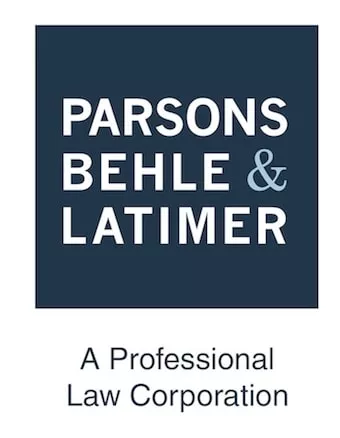How Would You Like a Four-Day Workweek?
On March 14, Senator Bernie Sanders introduced new legislation aimed at cutting the standard American workweek from 40 to 32 hours. That legislation Senate Bill 3947 proposes an amendment to the Fair Labor Standards Act of 1938. If passed, the bill would lower the threshold for overtime compensation for non-exempt employees working longer than eight hours per day, while safeguarding both pay and benefits to ensure that the reduction does not cause an overall decrease in pay. The bill suggests a gradual reduction period: Over the next three years, the 40-hour workweek standard would reduce annually by two years, to 38, 36 and 34 before eventually reaching the 32-hour mark.
No need to start counting the additional overtime premiums you may owe employees just yet though. The bill seems unlikely to pass. A similar bill was introduced last year by California Representative Mark Takano and failed. Still, it's an interesting trend to think about, particularly if you live and work in a state or municipality that may consider a similar change on a local level.
Age Discrimination Can Cost You Big
An Ohio amusement park was recently in the news for paying a $50,000 settlement in an age discrimination suit brought by the Equal Employment Opportunity Commission (EEOC). The park, which provides on-site housing for out-of-town seasonal employees had implemented a policy barring employees aged 30 years and older who were not employed as entertainers, from living in that housing. The EEOC's complaint stated that this policy prevented older out-of-town workers from undertaking seasonal employment at the park, because the park's housing was offered at rent far below market rates.
You may recall that the federal Age Discrimination in Employment Act (ADEA) bars employers from discriminating against employees aged 40 years and over. The park's housing policy, which applied to employees aged 30 years and over, obviously encompassed that protected class.
In addition to securing monetary relief for former employees, the settlement secured policy changes intended to prevent further age discrimination, including a commitment that the park would utilize a housing policy that does not discriminate against employees aged 40 years and older, a requirement that the park implement a revised ADEA policy, and an agreement for the park to provide training on the ADEA for management personnel and those responsible for managing and implementing housing benefits and policies.
We All Scream for Ice Cream (But Not on a School Night)
Closer to home, two ice cream chains have recently been fined for violations of federal child labor law, which prohibits employers from allowing 14- and 15-year-olds to work too many hours in a week, or too late into the night, during weeks when school is in session.
Earlier this month, eight Baskin Robbins locations around the state of Utah were fined $49,833 for violating those federal child labor standards—and last January, three Cold Stone Creamery locations in Utah were fined $42,714 for the same type of violation.
So what protections, exactly, does federal law require? As relevant to the scoop shops facing fines, 14- and 15-year-olds cannot work more than three hours per day on a school day (including Fridays); more than 18 hours a week during a school week; or after 7 p.m., except between June 1 and Labor Day, when their shifts must end by 9 p.m. Other restrictions also apply. The federal standard changes based on the age of the worker, and—to further complicate things—state, local and municipal standards may also apply.
If you employ minors of any age, talking through their shift assignments, hourly schedules and rate of pay with counsel is a good first step to avoiding a pricey penalty.
SpaceX Severance Agreements Under Scrutiny
You have heard a lot about the new standards the National Labor Relations Board (NLRB) has issued for confidentiality and non-disparagement clauses in severance agreements. We covered those standards in detail in our last issue. The NLRB has now begun enforcing them. Recently, the NLRB filed a complaint against SpaceX, alleging that its severance agreements are unlawful. As the NLRB said in a recent statement to the press, its complaint reflects its concern that SpaceX's "employment agreement provisions have been interfering with restraining and coercing employees in the exercise of the rights guaranteed in the National Labor Relations Act."
Specifically, the NLRB complaint claims that SpaceX included unlawful confidentiality and non-disparagement clauses in severance agreements. It also allegedly improperly limited terminated workers' ability to participate in claims against the company through a severance-agreement provision that read: "You agree not to provide assistance to any current, former, or future SpaceX employee with respect to any complaints, concerns, claims, or litigation of any kind against the Company, whether individual or class or collective action, unless compelled to do so by a valid subpoena or court order." The NLRB also challenges SpaceX's decision to require employees (as a condition of their employment) to sign an arbitration agreement that waives their right to receive money in class-action lawsuits against SpaceX.
The agency is seeking multiple forms of relief, including requiring SpaceX to rescind its current severance agreements and class-action waivers and broadly notifying workers of a notice of employee rights. If SpaceX does not settle the case, the complaint will be heard in late October. SpaceX is required to provide its response to the complaint by next week.
Question Corner
Importance of Paid Time Off Policies
By Patrick M. Ngalamulume
Q. An employee worked his entire 40 hours by Wednesday and has requested paid time off (PTO) for Thursday and Friday, bringing the week's total hours worked to 56. Are we required to pay him for the additional requested time, considering he had already worked his 40 hours and our handbook describes PTO to be used to make up for lost days?
A. The Fair Labor Standards Act (FLSA) does not require employees to be compensated for time not worked. Employers have the authority to impose certain requirements regarding when employees may or may not use available PTO, provided the employer's PTO policies are clearly written and consistently applied. Since the handbook postulates that PTO is limited to use for lost days, and the employee has already worked the required 40-hours, you are not required to pay the employee for additional time beyond the standard workweek.
The content of this article is intended to provide a general guide to the subject matter. Specialist advice should be sought about your specific circumstances.



